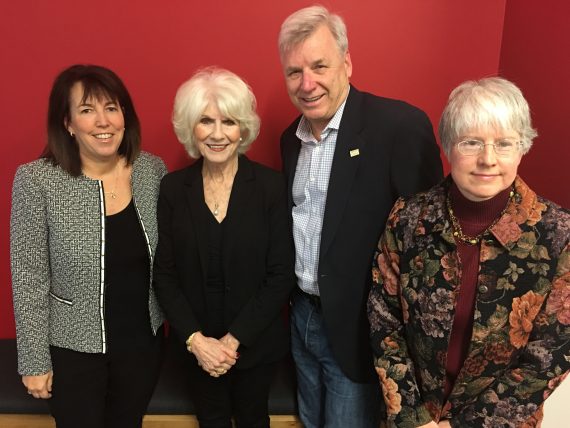
Dr. Dinah Miller, Diane Rehm, Pete Earley, Dr. Annette Hanson
(11-29-16) Few topics are as hotly debated as Involuntary Commitment, which was the featured topic on the second hour of the Diane Rehm show today. The reason for the discussion was COMMITTED: The Battle Over Involuntary Psychiatric Care, a new book by Drs. Dinah Miller and Annette Hanson. I was invited because I wrote the book’s foreword.
You can listen to the entire hour program here.
After the program, Drs. Miller and Hanson spent a half hour answering comments on Facebook — and there were plenty of them and questions that I’ve included in this post. You can also read more comments and an excerpt from the book here.
I believe if mental illness could be openly and humanly discussed maybe the person with mental problems could receive help before the illness progressed to the extent of commitment.
I have known FAR too many youth whose families committed them for a normal range of behaviors to be found in adolescence. Invariab…See More



